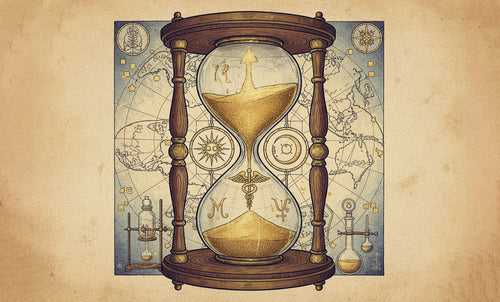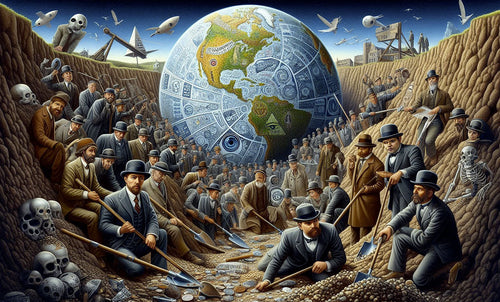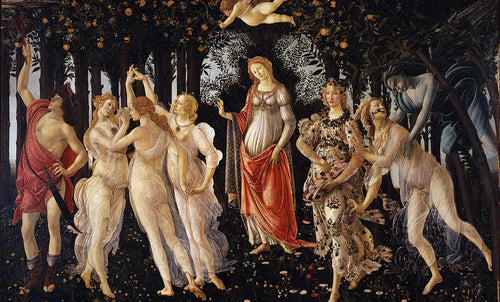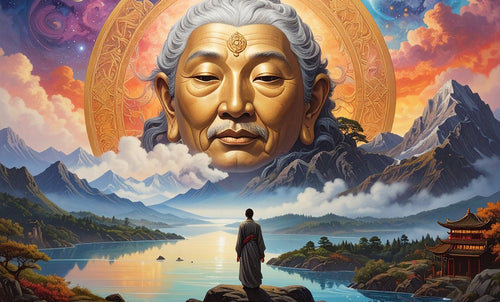
Thought and Desire. Part 1
Alessandro Rusticelli1. Introduction
Thought is a generative force that permeates every aspect of our existence, both individually and collectively. In fact, it is through the activity of our minds that, from the earliest years of life, we shape the world around us and give meaning to what happens to us.
There is no doubt that thought is a creative entity , capable of giving birth to innovations that influence the course of human history. It allows us to visualize possibilities and realize projects of all sorts; without it, the revolutionary inventions, works of art and scientific theories that have transformed the world would never have been conceived.
Yet thought alone is not enough. The creative process , in fact, needs something to trigger the imagination, an emotion that transforms fantasies into actions, dreams into reality. We are talking about desire, the spark that lights our thinking. Man's relationship with desire has always been complicated. Venerated and feared at the same time for its vehemence, it is a key element of our psyche that we all, sooner or later, have to deal with in the process of personal growth, a fact that has been reflected upon for centuries both in the West and in the East.
In the following pages we will deal with the way in which man has come to terms with desiring thought, seeking at times to liberate or to harness its immense creative power.
2. From Plato to Schopenhauer
The West's reflection on desire begins in Plato's Symposium. The Athenian philosopher, in the myth of Aristophanes, tells that men were originally beings with two faces, four legs and as many arms. Their power made them proud, pushing them to climb Olympus, so Zeus decided to punish them by cutting them in half.
Thus divided, men became weak and were condemned to the fate of continually yearning for their lost unity, desiring what they could no longer have. For Plato, then, desire in all its forms is based on lack. Those who desire always imagine something that is absent, remaining trapped somewhere between past loss and future absence. Plato's desire has something tragic and manifests itself as a force that folds in on itself. Nonetheless, this idea has influenced much of Western reflection on the subject, from antiquity to the present day.
If these are the premises, it is not surprising that, centuries later, Augustine of Hippo defined desire as a source of perennial misery. In fact, Augustine makes an accurate analysis of desire, worthy of modern mental sciences. He reminds us, in fact, that desire grows continuously: the more we feed it, granting it what it wants, the more imposing it becomes. And naturally, the greater our desires, the more dissatisfied, restless and anxious we are.
Augustine's words echo an analysis of desiring thought that is also found in the Asian world, particularly in the concept of tanha (craving), which Buddhism considers to be the origin of human suffering.
We will have occasion to return to this interesting topic later.
The conception of desire as a lack finds fertile ground in Europe and grows with the passage of time. In the seventeenth century, for example, Locke and Spinoza depict desire as a real discomfort of the soul, the cause of thoughts that are forced to revolve around the ghost of what cannot be possessed, without ever managing to achieve anything. For them, desire poisons thought, which is productive only when guided by reason.
With Schopenhauer, the reflection on desire becomes even more complicated: the German thinker states that the mind filters reality through a priori categories that give us a deceptive vision of life. The phenomenon is nothing but a mere appearance that exists only in our mind and does not constitute the truth. For the philosopher from Danzig, “the world is a representation” and life is nothing but a “dream”.
Beyond appearances, what governs existence is the blind will to live, an impersonal and compelling impulse that no one can resist. It does not belong to man alone, but is specific to every creature; as such, it is the noumenon, the essence of all reality.
Schopenhauer's thesis is that living beings do not act for any precise purpose, there is no meaning in their actions other than willing for willing's sake, living for living's sake.
Ultimately Schopenhauer constructs a metaphysics of desire: for him, wanting means desiring and desire is nothing but lack, need and pain. “No object of wanting,” he says, “once achieved, can give lasting satisfaction, but rather resembles only alms, which thrown to the beggar prolongs his life today to continue his torment tomorrow.” The German’s pessimism is an endless abyss and we will have to wait some time before desire is recognized as something that the West, unlike the Eastern world, has long tried to minimize: creative power.















































